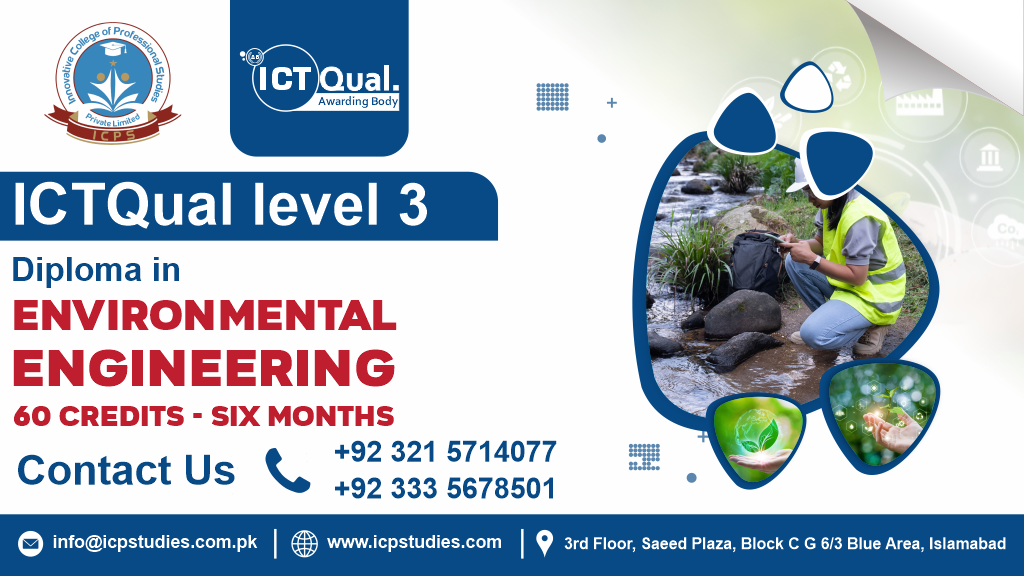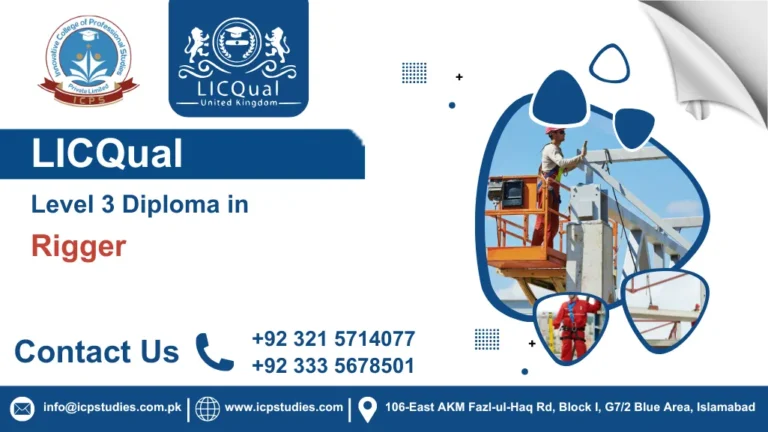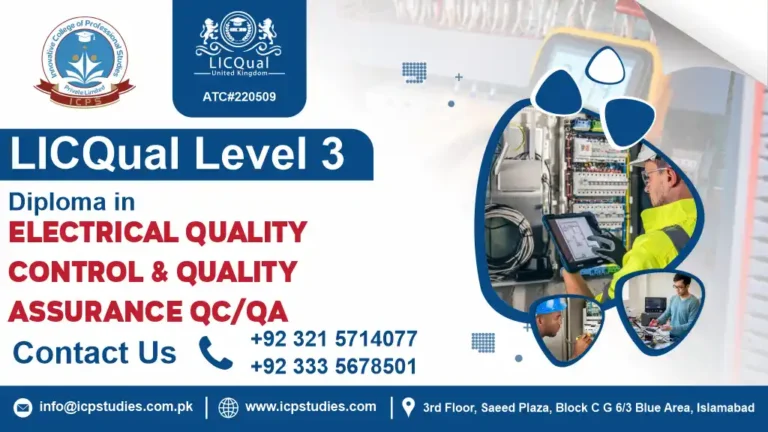The ICTQual Level 3 Diploma in Environmental Engineering (60 Credits) is a comprehensive and intensive six-month course designed to equip learners with the essential skills and knowledge required for a career in environmental engineering. As environmental concerns grow globally, the demand for qualified professionals in this field has never been higher. This qualification offers a structured pathway for individuals aiming to develop expertise in environmental management, sustainable engineering practices, and regulatory frameworks essential for solving environmental challenges.
The ICTQual Level 3 Diploma in Environmental Engineering is a 60-credit qualification spread over a six-month study period. This qualification is designed for learners seeking to deepen their understanding of environmental engineering concepts, focusing on practical and theoretical knowledge necessary for effective decision-making in environmental practices. The curriculum blends theoretical instruction with hands-on applications, preparing students for both fieldwork and academic excellence.
The ICTQual Level 3 Diploma in Environmental Engineering (60 Credits) is a valuable qualification for anyone interested in the growing field of environmental engineering. With a strong emphasis on sustainability, compliance, and practical skills, this course equips learners with the tools needed to tackle some of the most pressing environmental issues of our time.
If you are passionate about making a positive environmental impact and pursuing a career in this dynamic sector, this six-month diploma offers the perfect opportunity to achieve your goals.
All About ICTQual Level 3 Diploma in Environmental Engineering 60 Credits – Six Months
Course Overview
The ICTQual Level 3 Diploma in Environmental Engineering is a dynamic and industry-relevant qualification designed for individuals eager to pursue a career in environmental engineering or enhance their existing skill set. This six-month, 60-credit course provides a comprehensive understanding of the principles, technologies, and best practices used in the environmental engineering field.
As the world faces increasing environmental challenges, there is a growing demand for professionals who can design, implement, and manage sustainable solutions to address issues such as pollution, resource management, and climate change. This diploma offers in-depth knowledge of environmental regulations, waste management, water treatment, and renewable energy, preparing learners to contribute meaningfully to environmental protection and sustainability.
Whether you’re a new learner aiming to enter the field or a professional seeking to advance your career, this qualification provides the foundational expertise necessary for a successful role in environmental engineering. With a blend of theoretical knowledge and practical application, the ICTQual Level 3 Diploma is your gateway to a rewarding career in one of the most crucial industries of the 21st century.
Study Units
- Fundamentals of Environmental Engineering
- Sustainable Development and Green Engineering
- Pollution Control and Resource Management
- Environmental Monitoring and Reporting
- Environmental Policy and Governance
- Advanced Topics in Environmental Engineering
To enroll in the ICTQual Level 3 Diploma in Environmental Engineering (60 Credits), applicants should meet the following entry requirements:
- Educational Background:
- Minimum of 4 GCSEs (Grade C/4 or above), including English, Mathematics, and a Science subject. Alternatively, a Level 2 qualification in a relevant subject, such as engineering, environmental science, or construction, may be acceptable.
- Equivalent qualifications from other education systems will also be considered.
- Age Requirement:
- Applicants must be 16 years or older at the time of enrollment.
- English Language Proficiency:
- For non-native English speakers, a proficiency level of IELTS 5.5 or equivalent is required to ensure learners can fully engage with the course materials and assignments.
- Work Experience (Optional but Beneficial):
- While not mandatory, prior experience or a background in fields such as environmental science, civil engineering, construction, or sustainability can be an advantage in understanding the practical applications of the course content.
- Motivation and Commitment:
- A strong interest in environmental sustainability and engineering, along with a commitment to completing the course, is essential.
If you are unsure whether you meet the entry requirements, please contact the course provider for further guidance.
The ICTQual Level 3 Diploma in Environmental Engineering is ideal for a wide range of individuals who are interested in pursuing or advancing their careers in the environmental engineering sector. This course is specifically designed for:
- Aspiring Environmental Engineers:
- Individuals who want to start a career in environmental engineering and need a solid foundation in key areas such as sustainability, waste management, water treatment, and environmental regulations.
- Professionals Looking to Upskill:
- Those already working in engineering, construction, or environmental management who wish to enhance their knowledge and expertise in environmental engineering to take on more specialized roles.
- Graduates from Related Fields:
- Recent graduates with backgrounds in engineering, environmental science, or related fields looking to specialize in environmental engineering or shift their focus towards sustainability and environmental management.
- Environmental Advocates:
- Individuals passionate about environmental conservation, sustainability, and making a positive impact on the planet, who wish to gain formal qualifications in environmental engineering to further their cause.
- Project Managers and Consultants:
- Professionals in project management, civil engineering, or sustainability consulting who want to broaden their expertise in environmental assessments, compliance, and sustainable project implementation.
- Career Changers:
- People from diverse backgrounds who are interested in transitioning into a career in environmental engineering and are looking for a structured pathway to gain the necessary skills and qualifications.
- Regulatory and Compliance Specialists:
- Those working in environmental regulation or compliance who wish to deepen their understanding of the technical aspects of environmental engineering, ensuring their work is informed by the latest industry practices and regulations.
If you are passionate about sustainability, eager to learn, and ready to contribute to solving the world’s environmental challenges, this course offers the essential skills and knowledge to help you succeed in the environmental engineering field.
Learning Outcomes
Unit 1: Fundamentals of Environmental Engineering
By the end of this unit, learners will be able to:
- Comprehend the core principles of environmental science and their relevance to engineering practices.
- Explain the structure, function, and interconnectedness of ecosystems.
- Identify key environmental challenges, such as climate change, biodiversity loss, and resource depletion.
- Apply foundational knowledge to assess environmental impacts and propose engineering solutions.
Unit 2: Sustainable Development and Green Engineering
By the end of this unit, learners will be able to:
- Define sustainable development and its critical role in engineering practices.
- Identify and evaluate green engineering techniques aimed at minimizing environmental impact.
- Demonstrate understanding of renewable energy sources, including solar, wind, and bioenergy.
- Assess strategies for improving energy efficiency and promoting resource conservation in engineering projects.
Unit 3: Pollution Control and Resource Management
By the end of this unit, learners will be able to:
- Describe the primary types and sources of pollution affecting air, water, and soil.
- Evaluate methods and technologies for reducing and mitigating pollution in various environments.
- Analyze resource management strategies and their impact on sustainability.
- Develop an understanding of waste minimization and recycling techniques.
Unit 4: Environmental Monitoring and Reporting
By the end of this unit, learners will be able to:
- Explain the principles and importance of environmental monitoring.
- Identify tools and methods for measuring air, water, and soil quality.
- Analyze environmental risk assessment processes.
- Interpret and document environmental data for reporting and informed decision-making.
- Understand the role of Geographic Information Systems (GIS) in monitoring environmental changes.
Unit 5: Environmental Policy and Governance
By the end of this unit, learners will be able to:
- Understand global environmental laws, treaties, and agreements.
- Explain the role of national and international regulatory frameworks in environmental protection.
- Assess the contributions of governments, NGOs, and businesses to environmental governance.
- Analyze policies aimed at combating climate change and promoting sustainability.
- Evaluate the ethical and social implications of environmental policies.
Unit 6: Advanced Topics in Environmental Engineering
By the end of this unit, learners will be able to:
- Explore emerging technologies in environmental engineering.
- Explain innovations in water treatment, air purification, and renewable energy systems.
- Analyze sustainable urban planning practices and infrastructure development approaches.
- Assess engineering solutions for addressing global environmental challenges.
- Understand the application of advanced techniques in solving complex environmental issues.
FAQs about ICTQual Level 3 Diploma in Environmental Engineering 60 Credits – Six Months







